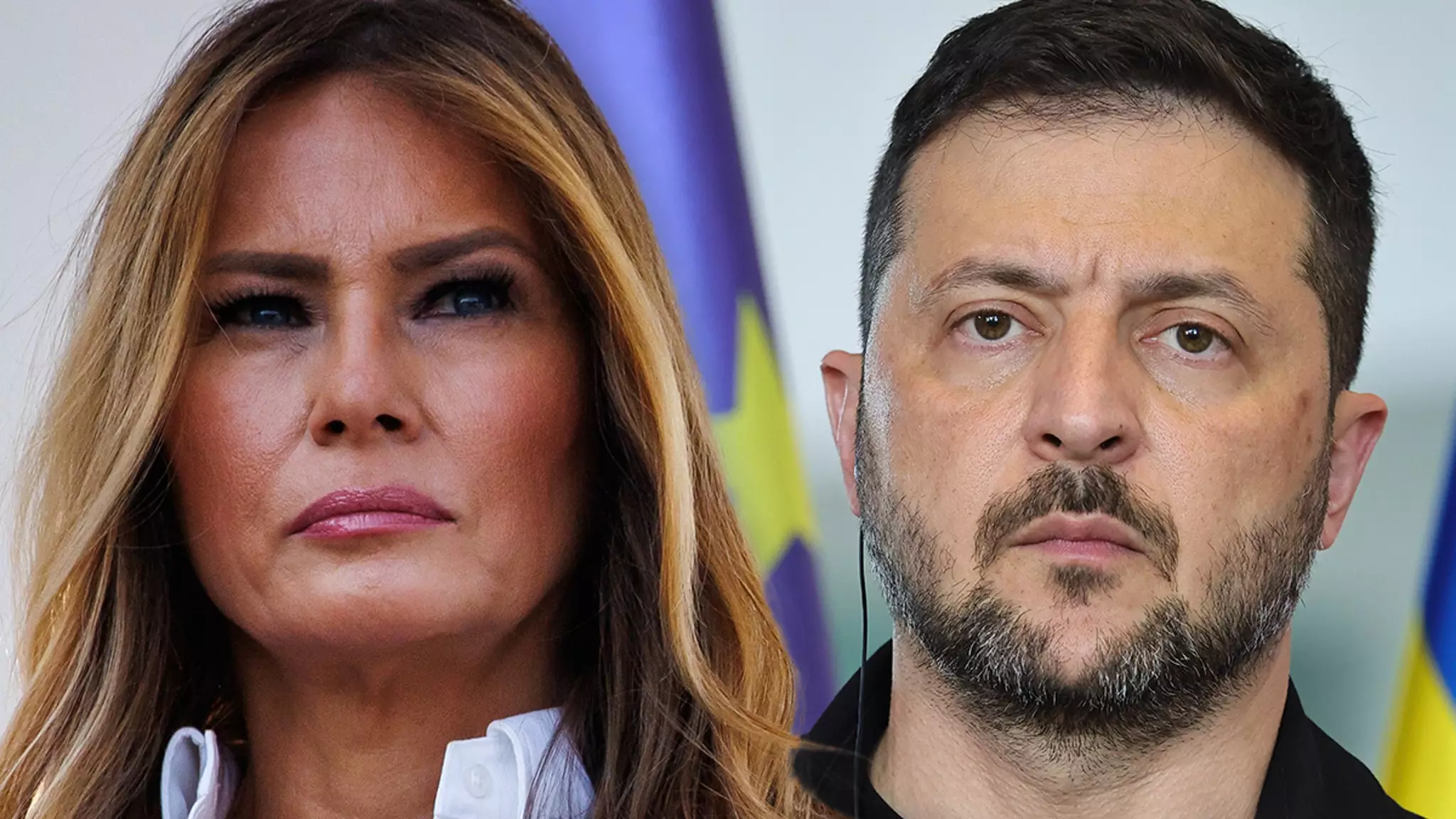In a political landscape often dominated by rhetoric and nationalism, Melania Trump’s choice to communicate through a personal letter to Vladimir Putin stands out as a noteworthy act. Despite her absence from the high-stakes summit in Anchorage, her handwritten message conveyed a deep sense of moral responsibility — highlighting the plight of children affected by the ongoing Ukraine conflict. This gesture underscores her influence, suggesting that even in a world where power is often wielded through formal diplomacy, heartfelt appeals can still sway perspectives, or at least provoke reflection. It challenges the notion that first ladies or political spouses are mere sidelines; instead, they can act as moral voices that resonate beyond official channels.
An Emotional Call for Innocence and Humanity
What makes Melania’s letter particularly compelling is the emotional appeal directed at Putin’s ego and sense of duty. She does not simply ask for political favors but appeals to a universal sense of innocence—urging Putin to protect the helpless children caught in the crossfire of geopolitical conflicts. Her words evoke a vision of a world where children, regardless of nationality, can dream freely of love and safety. While some might dismiss her approach as naive or overly sentimental, it arguably taps into a fundamental human longing for compassion—an element often overshadowed by hard diplomacy. The letter’s tone seeks to humanize the conflict, reminding leaders that moral accountability extends beyond borders and titles.
Strategic Diplomacy and the Power of Moral Persuasion
Despite her personal note, Melania’s letter is also a subtle form of diplomacy—an attempt to influence the course of international relations without formal negotiation. By publicly sharing the letter, she draws global attention to the emotional toll of war, possibly nudging powerful leaders toward more humane decisions. Her appeal coincides with the broader efforts of President Trump, who was present at the summit aiming to broker peace, albeit unsuccessfully. The timing of her message during this diplomatic turbulence highlights how even unofficial figures can contribute to peacebuilding, emphasizing that morality and diplomacy are intertwined. Her words serve as a reminder that genuine empathy can sometimes cut through political complexity, fostering a different kind of dialogue rooted in shared humanity.
The Subtle Power of Personal Influence in Global Politics
In an era where diplomacy often seems transactional and sterile, Melania Trump’s personalized plea exemplifies a different approach—one rooted in emotional resonance and moral appeal. While critics may interpret her actions as symbolic or superficial, they overlook the layered significance of her intervention. It signals to the world that empathy, especially from influential figures, still holds sway. Her attempt to appeal directly to Putin’s sense of duty—to serve humanity rather than merely wield power—shines as a rare example of moral intervention in international affairs. Whether or not her words will lead to tangible change remains uncertain, but her initiative undeniably adds a layer of ethical consciousness to the ongoing discussion of war and peace.

